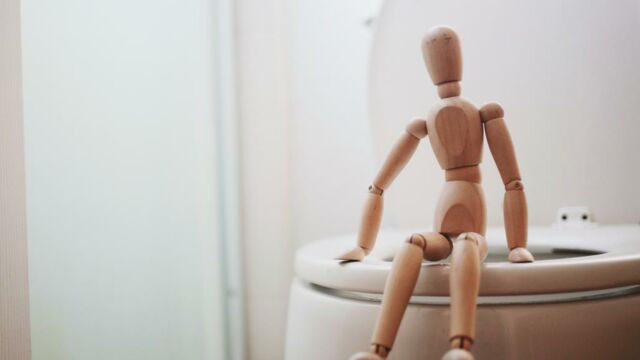This is how often you should be pooping a day

Is there a healthy amount of times one should be having bowel movements per day?
Bowel movements are essential for our health. Whether you're more of a morning pooper or a right-after-eating excrement evacuator, the job needs to get done one way or another. But, is there an ideal or recommended amount of times one should be pooping each day?
Discover our latest podcast
How often should you be pooping?
According to Healthline.com, no general number of times has ever been established by health professionals. As it turns out, the 'norm' can range anywhere from once or twice a day to about three times a week; it all depends on the individual's body and metabolism. Most people develop a pattern in which they will poop more or less the same amount at more or less the same time every day.
More under this adMore under this adHealthline.com conducted a survey in which 2,000 respondents answered questions regarding their bowel movement activity. The results were as follows:
- Almost 50% of people poop once a day. Another 28% report going twice a day. Only 5.6 percent reported going only once or twice weekly.
- Most respondents (61.3%) reported their average bowel movement was in the morning. Another 22% reported going in the afternoon, while only 2.6% poop very late at night.
- Nearly 31% of respondents reported their poop consistency was similar to that of a sausage or snake, of a smooth and soft consistency.
What should you really be looking into?
Although no ideal amount of times has ever been fixed, a more important factor to determine whether your pooping habits are healthy or not should be taken under consideration. For those wondering if what is coming out of their rear end is healthy or not, checking for the stool's consistency is a much better indication of health than the frequency at which they number two.
More under this adMore under this adIf your stool is loose or watery, then this can be indicative of digestive irritation. On the other hand, stools that are too hard can lead to hemorrhoids and cause constipation as a result. Generally speaking, poop should be soft, relatively easy to pass, brown due to the breakdown of red blood cells in the body and resemble a snake or sausage as it mirrors the inside of your intestines.
The Bristol Stool Chart was developed in 1997 at the Bristol Royal Infirmary as a diagnostic medical tool to help classify human faeces into 7 categories, ranging from 1—'severe constipation'—to 7—'severe diarrhea.' A healthy poo should look like a number 4 or 5.
More under this adMore under this ad